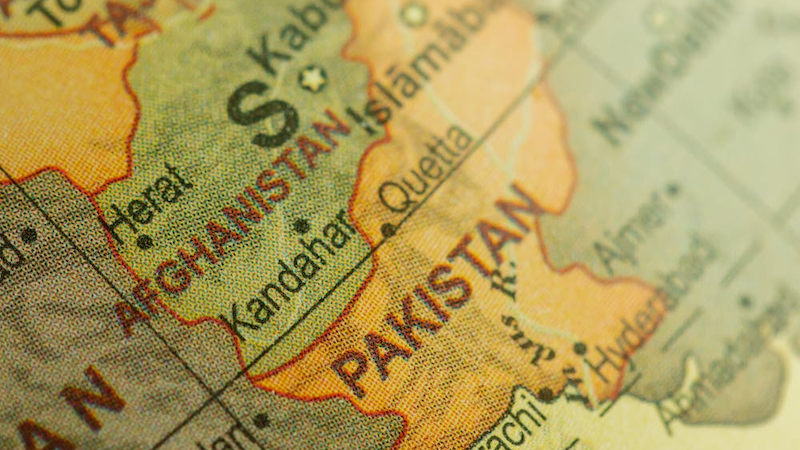
Pakistan was shocked by the news of mob lynching incident in Swat which was driven by blasphemy. A local tourist was burnt alive by an angry mob after forcefully abducting him from a police station where he was under arrest. This incident reflects clear fault lines and failure of Pakistan’s administrative, governance and legal systems in ensuring the basic human rights like safety of life and honor, which are enshrined in the constitution of the land.
This was not the first time when someone was accused and lynched over the allegations of blasphemy in Pakistan. Lately, there has been an alarming uptick in this trend where people use blasphemy to settle personal vendetta. It is not clear so far if the Swat incident was also one such episode but if we look back, only during the last year of 2023, there were multiple such incidents reported where people were lynched to death after being charged for blasphemy.
- In February 2023, a Muslim man named Muhammad Waris was lynched by an angry mob in Nankana Sahib after being arrested by police on blasphemy charges.
- In April 2023, a Chinese engineer was accused of blasphemy by Pakistani workers and nearly lynched, but was rescued by police and flown to safety.
- In May 2023, a local Muslim religious leader named Maulana Nigar Alam was killed by an angry mob at a political rally in Mardan district after being accused of blasphemy.
So, such incidents are nothing new in Pakistan but there are two concerning aspects which can have far reaching consequences for the state and society. Most obviously, incidents like Swat exposed the decay at societal level. People with lack of education and understanding of Islamic laws usually indulge into these heinous crimes. Lack of education give room to fundamentalist tendencies in masses which are further amplified by poorly educated local Imams. Consequently, at grassroot level no one considers a crime like mob lynching against the teaching of Islam who clearly orders Muslims to remain just and even in the pursuance of justice don’t cross certain limits like setting dead bodies to fire. This is leading the country towards second far reaching consequence i.e. perpetuated sense of insecurity that minorities in Pakistan. There has been a clear increase in violent incidents against minorities notwithstanding all the constitutional protection for them.
There exists no training for law enforcement agencies to counter mob. This was once again highlighted in Swat incident where police initially rescued the victim and took him into custody at the Madyan Police Station. However, they failed to protect him by consulting superiors or move him to a safer location and consequently exposing him to the angry mob that later stormed the station. This took place as police official in Madyan Police Station didn’t have any clearly defined operational strategy to ensure the security of accused. But like stated earlier, this failure is not isolated incident.
If we examine earlier incidents, we can trace a pattern of systemic inability of LEAs to uphold the rule of law by swiftly intervening and prosecuting the perpetrators involved in mob lynching incidents. For example, in Swat’s incident, police have failed to identify the persons who spread the allegations through mosques’ loudspeakers and entice people for violence and mob justice instead of relying on due process.
The lack of effective governance in preempting and addressing such violence speaks volumes about the state’s priorities in safeguarding all its citizens equally. This lack of state initiative for taking bold steps to combat religious hatred and extremism encourages the perpetrator and instill fear in everyone else, and consequently leads to bigger social dilemmas where such actors put the entire society in an environment of intolerance and fear. Space for free expression and debate reduces in such societies automatically and Pakistani society has become hostage to such elements due to state’s inaction for too long now.
The prevailing crisis is not only a challenge for minorities but over the years a sense of insecurity has grown among a silent majority of Muslims as well when it comes to expressing one’s desire to engage into a debate about religion or belief systems. This causes backwardness in the society by eliminating free speech and critical analysis of various social customs. Without free speech, no society can prosper and Pakistan is no exception in this regard.
The mob vigilantism has created considerable diplomatic challenges for the state as well. Pakistan is viewed negatively internationally whenever such incident and state’s inability to punish the perpetrators is reported in global media. Such incidents provide impetus to hostile entities to initiate a campaign to isolate Pakistan in the capitals where human rights take priority in diplomatic credentials of a foreign state.
The most unfortunate aspect of this entire national ordeal is that such incidents are often used as political opportunities to settle scores by political actors. More than once it has been seen that not only victims of violence are accused without any conclusive judicial process but perpetrators were hailed as national heroes or soldiers of Islam. The Mumtaz Qadri episode is a stark reminder of this fact.
There is no easy and quick fix to this growing challenge but not addressing it will only make it worse and is going to have longstanding consequences for the country. Dispensation of swift and impartial justice for victims of mob violence can be a starting point. In this regard, Swat incident offers ideal opportunity to the state. At parallel, Pakistan needs to train its police force and other LEAs to intervene effectively to prevent escalation in such an environment. This trends also explains why Pakistan needs an education emergency in the country.
As the world watches, Pakistan faces a defining moment in its journey towards justice, tolerance, and respect for human dignity. The question remains: will it rise to the challenge?
